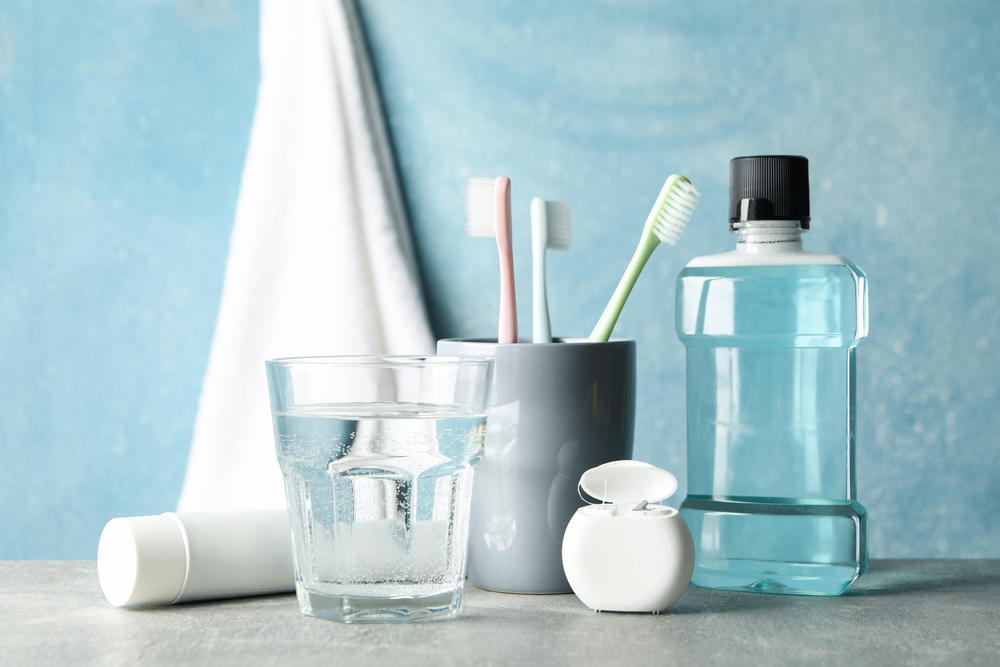How To Care For Your Oral Hygiene Tools And Products

Sustaining proper oral hygiene is a crucial component of upholding overall health. Using the proper oral hygiene tools and products is crucial, but it’s equally important to keep them clean and safe from germs and bacteria. In this article, we’ll discuss the top ways to care for your oral hygiene tools and products.
Caring for Oral Hygiene Tools
Toothbrushes
Your toothbrush is the most essential tool for maintaining good oral hygiene. After brushing your teeth, rinse your toothbrush thoroughly with water, shake off the excess, and let it dry in an upright position. Avoid storing it in a closed container or drawer, as it can create a breeding ground for bacteria. Waterloo family dental clinics recommend replacing your toothbrush (including the heads on electric toothbrushes) every three to four months. You may replace it sooner if the bristles are frayed.
Pro Tip: Consider using an electric toothbrush, as they are known to be more effective at removing plaque than manual toothbrushes.
Dental Floss
Flossing is essential for maintaining gum health and overall oral hygiene. To keep your dental floss sanitary:
- Always wash your hands before flossing.
- Avoid reusing the same section as it can spread bacteria. Always use a clean section.
- Dispose of used floss in the trash, and never flush it down the toilet.
Pro Tip: Consider using water flossers, which use high-pressure water to clean between teeth and can be more comfortable to use than traditional floss.
Water flosser
Maintaining a water flosser is essential for its effectiveness and hygiene. To clean the water reservoir:
- Use a soft-bristled toothbrush to scrub the inside. You can cleanse with a gentle soap and ensure thorough rinsing with water. Let it air dry.
- Change the water in the reservoir daily, even if you don’t use the flosser every day.
- Replace the flosser tips every three to six months, depending on the frequency of use.
- Store the flosser in a dry and cool place. Store the water flosser away from direct sunlight and heat. Waterloo dentists recommend to descale it regularly to remove mineral buildup.
Tongue Scraper
A tongue scraper is a convenient instrument for removing bacteria and debris from the tongue’s surface, helping to reduce bad breath. To keep it clean, rinse it thoroughly with water after each use. Let it air dry. Alternatively, you can also disinfect the tongue scraper by immersing it in a solution of hydrogen peroxide. Keep in mind to combine with equal parts water. This is encouraged to be part of your oral hygiene routine; soak the tongue scraper for a few minutes once a week.
Pro Tip: Try using a tongue scraper in the morning before brushing your teeth to remove any bacteria or debris that may have potentially accumulated on your tongue overnight.
Caring for Oral Hygiene Products
Toothpaste
Toothpaste is an essential component of maintaining good oral hygiene, and it’s necessary to keep it clean and safe from germs. Always use a clean and dry toothbrush to apply toothpaste to your teeth. When you’re done, clean the toothpaste tube’s nozzle and replace the cap to prevent it from drying out. Toothpaste has an expiration date, so be sure to check the packaging and replace it if it’s past its expiration date.
Pro Tip: Look for toothpaste that contains fluoride, as it can help prevent cavities and strengthen tooth enamel.
Dental Floss
Floss is an essential component of your oral hygiene routine, and it’s necessary to keep it sanitary. Store it in a cool, dry place. It is also recommended to store the floss away from direct sunlight or heat. Avoid exposing it to moisture or dampness, as it can cause it to deteriorate. Floss also has an expiration date, so be sure to check the packaging and replace it if it’s past its expiration date.
Pro Tip: Experiment with different types of floss. Ask your Waterloo dentist to recommend one that best suits your oral health. Some people prefer waxed floss, while others prefer unwaxed floss or floss picks.
Mouthwash
Mouthwash is an effective way to freshen your breath and kill bacteria in your mouth. However, it’s crucial to store it properly. Never use a decanter to store your mouthwash, as it can cause contamination and reduce its effectiveness. Always use the original bottle, and make sure to tighten the cap after use. Mouthwash also has an expiration date, so be sure to check the packaging and replace it if it’s past its expiration date.
Pro Tip: Consider using mouthwash that contains fluoride or antibacterial agents, which can help prevent tooth decay and gum disease. However, it’s important to remember that mouthwash should not replace brushing and flossing in your daily oral hygiene routine.
Fun Facts
Did you know that using dry mouthwash powder can help reduce plastic waste? Dry mouthwash powders come in a small glass jar and are mixed with water before use. They contain natural ingredients and are free from artificial preservatives, colors, and flavors.
Another interesting fact is that dental floss has existed for over 200 years! In the 1800s, silk thread was commonly used as dental floss. Nowadays, dental floss is typically made from nylon or other synthetic materials.
Maintaining good oral hygiene is vital for healthy teeth and gums. Using the proper oral hygiene tools and products and keeping them clean and sanitary is essential to achieve optimal oral health. By adhering to the recommendations provided in this article, you can ensure that your oral hygiene tools and products are well-maintained and effective. It is important to keep in mind the significance of regular visits to your dentist for cleanings and fillings, and consider the option of fluoride treatment for the additional protection against tooth decay. By prioritizing your oral health, you’ll be taking a proactive step toward maintaining your overall health and well-being.
